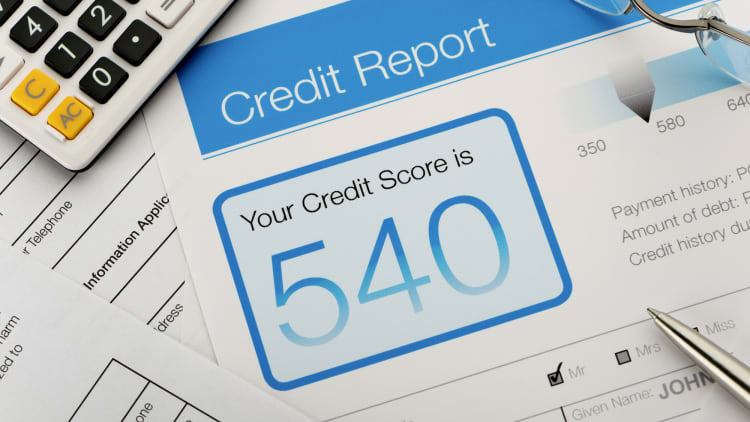How to get your credit score above 800

Generally speaking, the higher your credit score, the better off you are when it comes to getting a loan.
FICO scores, the most popular scoring model, range from 300 to 850. A “good” score generally is above 670, a “very good” score is over 740 and anything above 800 is considered “exceptional.”
Once you reach that 800 threshold, you’re highly likely to be approved for a loan and can qualify for the lowest interest rate, according to Matt Schulz, LendingTree’s chief credit analyst.
More from Personal Finance:
Here’s the best way to pay down high-interest debt
63% of Americans are living paycheck to paycheck
‘Risky behaviors’ are causing credit scores to level off
There’s no doubt consumers are turning to credit cards as they have a harder time keeping up with their expenses and there are a lot of factors at play, he added, including inflation. But exceptional credit is largely based on how well you manage debt and for how long.
Earning an 800-plus credit score isn’t easy, he said, but “it’s definitely attainable.”
Why a high credit score is important
The national average credit score sits at an all-time high of 716, according to a recent report from FICO.
Although that is considered “good,” an “exceptional” score can unlock even better terms, potentially saving thousands of dollars in interest charges.
For example, borrowers with a credit score between 800 and 850 could lock in a 30-year fixed mortgage rate of 6.13%, but it jumps to 6.36% for credit scores between 700 and 750. On a $350,000 loan, paying the higher rate adds up to an extra $19,000, according to data from LendingTree.
4 key factors of an excellent credit score
Here’s a breakdown of four factors that play into your credit score, and ways you can improve that number.
1. On-time payments
The best way to get your credit score over 800 comes down to paying your bills on time every month, even if it is making the minimum payment due. According to LendingTree’s analysis of 100,000 credit reports, 100% of borrowers with a credit score of 800 or higher paid their bills on time, every time.
Prompt payments are the single most important factor, making up roughly 35% of a credit score.
To get there, set up autopay or reminders so you’re never late, Schulz advised.
2. Amounts owed
From mortgages to car payments, having an exceptional score doesn’t mean zero debt but rather a proven track record of managing a mix of outstanding loans. In fact, consumers with the highest scores owe an average of $150,270, including mortgages, LendingTree found.
The total amount of credit and loans you’re using compared to your total credit limit, also known as your utilization rate, is the second most important aspect of a great credit score — accounting for about 30%.
As a general rule, it’s important to keep revolving debt below 30% of available credit to limit the effect that high balances can have. However, the average utilization ratio for those with credit scores of 800 or higher was just 6.1%, according…
Read More: How to get your credit score above 800
